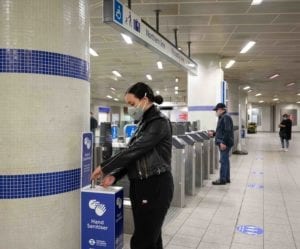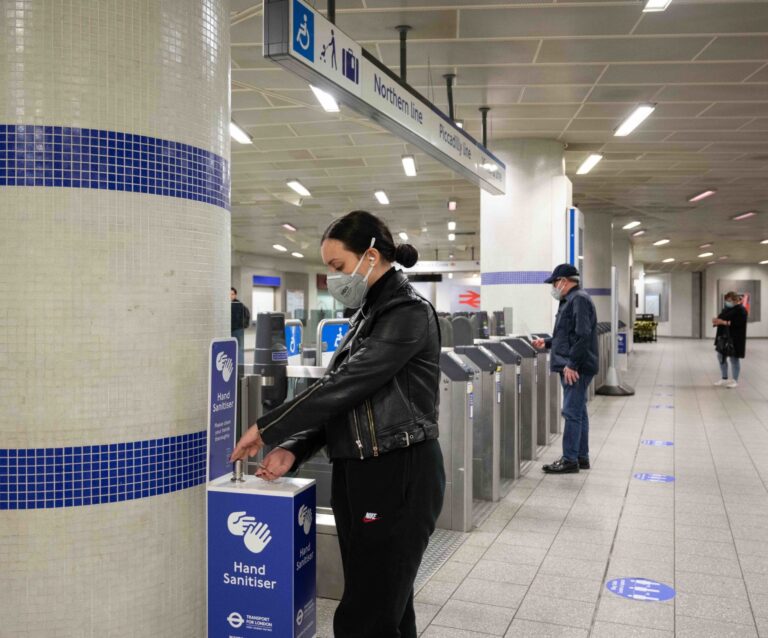Transport for London (TfL) has announced it is piloting the temporary distribution of free face coverings from today.
The coverings are being given out at a selection of tube and bus stations that have typically seen higher numbers of customers travelling throughout the lockdown period.
The pilot is expected to run over the next couple of weeks – with volunteers from TfL and the Greater London Authority (GLA) distributing them to customers who need them.
TfL said police partners will support the organisation, its operators and customers to comply with the requirement to wear a face covering when on public transport.
In addition, TfL said it is working with retail tenants on the transport network to help make more face coverings available to people who are travelling.
The transport authority’s latest estimates suggest that between 30-50% of customers on public transport are now protecting other passengers and staff by using a face covering, with the new requirements designed to make face coverings the norm.

Mike Brown, London’s transport commissioner, said: “I encourage customers not to wait, and to start wearing them now if they are not already.
“Face coverings can now be quite easily made or purchased, and we are helping by temporarily handing out free masks at hot spot tube and bus stations.
“But the clear advice from the government and mayor remains – people should continue to work from home if they can and avoid travelling on public transport to create space for those who are making essential journeys.”
Other measures being implemented by TfL to help enable social distancing include new signage and platform stickers, as well as operating stations differently through restricting entry if necessary and one-way and queuing systems.
Hundreds of hand sanitiser points have also been introduced across the transport network and an enhanced cleaning regime was introduced on the network earlier this year.
This includes additional hospital-grade cleaning substances that kill viruses and bacteria on contact, new anti-viral disinfectant that protects for up to 30 days, key interchanges being cleaned more frequently – including during the day – and all regular ‘touch point’ areas on buses, such as poles and doors, being wiped down with a strong disinfectant every day.
Furthermore, TfL has published the 20 busiest stations to help people avoid known hotspots.
This will be updated regularly, and Londoners are encouraged to avoid using those stations wherever possible at busy times to help maintain social distancing and to avoid potentially having to wait to enter those stations.
TfL said it has been ramping up its services to meet gradually growing demand and is currently running over 85% of tube services and 85% of bus services.
However, even with full services running, public transport will only be able to carry 13-15% of normal passenger numbers while the recommend 2m social distancing remains.
London’s Streetspace programme is therefore aimed at supporting journeys made by walking and cycling.
It includes widening paths in busy town centres such as Brixton to prevent crowding, introducing new car free zones in central London and protected cycleways on busy thoroughfares such as Park Lane.
In total, over 15,000m2 of additional space has been created so far.
Read more from CiTTi
https://www.cittimagazine.co.uk/face-coverings-to-become-mandatory-on-public-transport/





